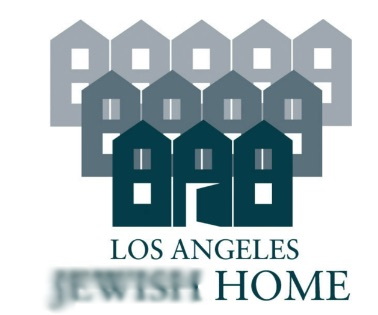
–>
July 17, 2022
Names are extremely important in all cultures, and especially in Judaism. The Torah teaches that when Avram makes his covenant with God, his name is changed to Avraham to reflect his heightened spiritual awareness. When someone is extremely sick, there is the custom in both Judaism and other traditions of giving him a new name to enhance his healing. Many cultures believe that if you are named after someone, then you carry a bit of that person’s soul. The concept of names is so important that the second book of the bible (known as “Exodus” in English), is actually named in Hebrew, “Shemot”, which means “names.
‘); googletag.cmd.push(function () { googletag.display(‘div-gpt-ad-1609268089992-0’); }); }
Given this truth, we need to ask the question as to why two of the largest non-profit Jewish organizations in Los Angeles have recently chosen to change their names and remove any reference to Judaism from their new monikers. We additionally need to see how this is a larger pattern of “re-naming” that is taking place with individuals and organizations, and is reflective of some disturbing challenges.
There is an old saying that the Jews are a “canary in the coal mine” for a nation; they historically are often microcosmic models of what is happening in the general population.
The Los Angeles Jewish Home, known for over a century just as “The Jewish Home” was founded in 1912 to give shelter to five Jewish men. With an annual budget of over 50 million dollars, this non-profit has over 1500 Jewish seniors as residents, and serves another 2500 through health and community services. As would be expected, the vast majority of donors to this non-profit organization are Jews and Jewish organizations, who desire to help elders of their own faith in the last years of their lives.
‘); googletag.cmd.push(function () { googletag.display(‘div-gpt-ad-1609270365559-0’); }); }
 But on July 1, the time when many people are away on vacation, and Jewish clergy are busy preparing for the upcoming High Holidays in September, the Jewish Home made a quiet but hugely significant change to their entire persona. They removed the word “Jewish” from their identity. They are now known as LAJHealth.
But on July 1, the time when many people are away on vacation, and Jewish clergy are busy preparing for the upcoming High Holidays in September, the Jewish Home made a quiet but hugely significant change to their entire persona. They removed the word “Jewish” from their identity. They are now known as LAJHealth.
Their fundraisers will undoubtedly attempt to say to donors that it is still a Jewish organization servicing Jewish elders; but if that is true, why make such a marked change?
The subtle change in direction can be found in the words of their CEO, Ilana Springer, who says in her July 1 letter to resident family members that this is “really just an evolution of our brand”. She is correct that it is an evolution — but one away from an organization proud of its commitment to a Jewish identity into a more secularized goal.
It’s not just that The Jewish Home is turning its back on being proud of its commitment to the Jewish community. These types of subtle secularizations have been happening over the last few years as Jews on the boards of non-profit organizations want to “reach out”, be “inclusive”, and “diversify” away from being focused on the Jewish community, and attempting to change their very identity with re-branding.
They are not the only example in the Jewish world. In 1931, Jewish Vocational Services was founded to help Jews develop marketable skills and gain employment. Many of the participants in their programs were new Jewish immigrants hailing from nations where they had escaped persecution, including Holocaust survivors, Russian refuseniks, and Persian immigrants. They helped countless Jewish families settle into this country through their amazing work and programs.
But in 2018, they changed their name from Jewish Vocational Services to JVS SoCal. They were very clear in their announcement of the name change. “…a fresh identity and new name that more accurately defines our mission to build better lives, one job at a time”. They redefined JVS, which now stands for “Jobs+Vision=Success”; and CEO Alan Levey was clear in his press release that “with this new identity, we will continue to leverage our legacy of positive community impact while expanding our services throughout Southern California as regional leaders in workforce development.” An admirable and valuable goal, but what happened their original identity of serving the Jewish community? Are the JVS Jewish donors, who have thought that they were giving to help other Jewish families, now aware that their donations are helping other non-Jewish groups and individuals, including some who may even be anti-Semitic and/or anti-Israel?
‘); googletag.cmd.push(function () { googletag.display(‘div-gpt-ad-1609268078422-0’); }); } if (publir_show_ads) { document.write(“
Can any of us imagine other cultural groups changing their names and removing the culture’s affiliation? Would the NAACP change its identity and become the National Association of People? Although we wish they would, does anyone foresee BLM changing their name to All Lives Matter? Is LULAC, the largest and oldest Hispanic and Latino civil rights organization in the country going to remove the reference to its cultural roots and become the League of United American Citizens? And can anyone imagine that CAIR will suddenly let go of its connection to Islam in order to be inclusive and change its name to the Council on American Relations?
No, of course none of those organizations would ever remove their identity from their names. These and other organizations like them are strengthening their identities rather than watering them down. It seems that 21st century American Jews are the first large cultural group willing to sabotage their identities, their purpose, and themselves in their quest for inclusiveness: and by changing their names and removing their Jewish identity, they are taking the first steps towards becoming entirely secular and homogenized, as well as sowing the seeds for their own destruction.
As is consistent with the concept of Jews being reflective of society in general, we see this disturbing changing of names, and subsequently identities throughout our world. And it is not beneficial for anyone.
We find this re-naming as the first step of changing identity in the lives of individuals as well. Teachers are encouraging young people to try out being “gender-fluid” by changing their names as an initial move towards changing their gender. Children are being told to try out the name of Lee instead of their birth name of Leah, or shift from identifying as Joe to becoming Josie as a starting step to becoming “non-binary” and eventually taking drugs or having surgery.
This changing of names to rebrand is seen in all areas of society. Pro-abortion was first rebranded as “pro-choice”, and the killing of not only a fetus, but in some cases even after the baby has left the womb is now being called “reproductive rights”. As activists and the media start to use that term, the rebranding of killing babies becomes associated with an inherent “right”, and if we allow that re-naming to continue, we will find that over time this “right” will become acceptable to the majority.
Is this really what we want for our world? This nation used to be proud of being a melting pot of different cultures, people, and ideas with common goals and purposes… but still retaining our individuality. But these name changes are leading us to the ugliness found in both Lenin’s politics and Lennon’s song “Imagine”, where there is no distinction between individuals, cultures, and even no difference between Heaven and Hell: leading to the conclusion of making a moral equivalence between good and evil. History, theology, literature, and common sense dictate that this will not lead to harmony, but instead to a subjugation of the masses to authoritarianism as each person and group loses their identity in the name of “inclusiveness”.
Changing names, whether for a Jewish organization or a political cause, creates a change in perception, which leads to a shift in reality: a homogeneity that loses individual identities in favor of a group think.
The beauty of a rainbow is found in the distinction of the colors that also co-exist next to each other. If that distinction is eliminated, then there are no beautiful colors, only a mass of grey-ish brown. And names are the first part of the distinctions that create that beauty.
May individuals and organizations reject this homogenizing of identity that is being exemplified by the Jewish Home, media, and children’s teachers. And may we all embrace the beauty and distinction of our heritage and names rather than succumb to the currently popular movement towards the homogeny of “inclusiveness”.
Rabbi Michael Barclay is the Spiritual Leader of Temple Ner Simcha in Westlake Village, CA; the author of “Sacred Relationships: Biblical Wisdom for Deepening Our Lives Together”; and can be reached directly at [email protected]
<!– if(page_width_onload <= 479) { document.write("
“); googletag.cmd.push(function() { googletag.display(‘div-gpt-ad-1345489840937-4’); }); } –> If you experience technical problems, please write to [email protected]
FOLLOW US ON
<!–
–>
<!– _qoptions={ qacct:”p-9bKF-NgTuSFM6″ }; ![]() –> <!—-> <!– var addthis_share = { email_template: “new_template” } –>
–> <!—-> <!– var addthis_share = { email_template: “new_template” } –>







